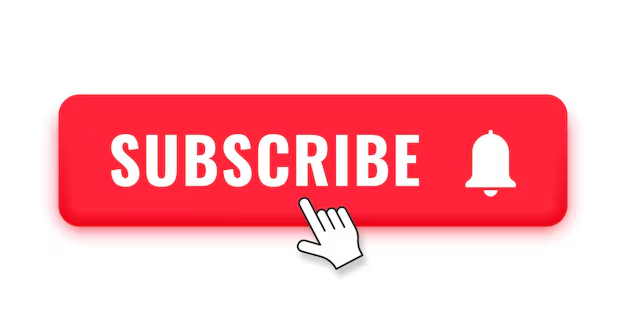Learn How to Effectively Use Lexical Resources in the IELTS Academic and General Training Speaking Test(Tips).

Lexical resources, or vocabulary, are a crucial part of your IELTS Speaking score. Using a wide range of words accurately and appropriately demonstrates your language proficiency. To score high, you need to show your ability to use different words, expressions, and idiomatic phrases naturally.
IELTS Speaking Tips for Lexical Resources
This is how to effectively use lexical resources to maximize your IELTS Speaking score, along with examples and pro tips.
1. Use a Range of Vocabulary
To achieve a high band score, it’s important to use a broad range of vocabulary. Don’t repeat the same words—try to replace them with synonyms or related terms. For example, instead of repeatedly saying happy, use words like joyful, pleased, ecstatic, or content.
Example:
- Basic: “I was very happy with my exam results.”
- Improved: “I was ecstatic with my exam results.”
2. Incorporate Collocations
Collocations are words that naturally go together, like make a decision or take a break. Using collocations will make your speech sound more natural and fluent.
Example:
- Basic: “I did a lot of mistakes in my essay.”
- Improved: “I made a lot of mistakes in my essay.”
3. Use Idiomatic Expressions
Idiomatic expressions can demonstrate a higher level of English ability. However, they should be used carefully and in the right context. A well-placed idiom can make your response sound more natural.
Example:
- Basic: “I was really nervous before the interview.”
- Improved: “I had butterflies in my stomach before the interview.”
4. Paraphrase the Question
Repeating the question’s exact words can limit your lexical range. Instead, paraphrase the question by using different vocabulary or expressions. This will showcase your ability to manipulate language.
Example:
- Question: “Do you think it’s important to stay healthy?”
- Basic: “Yes, I think it’s important to stay healthy.”
- Improved: “Yes, maintaining good health is essential.”
5. Use Subject-Specific Vocabulary
If the question relates to a specific topic, try to include relevant vocabulary. For example, if you’re asked about travel, use words like itinerary, destination, backpacking, or journey. If the topic is technology, words like innovation, gadget, cybersecurity, or artificial intelligence would be appropriate.
Example:
- Basic: “Technology is changing our world.”
- Improved: “Technological innovations are revolutionizing our daily lives.”
6. Be Cautious with Advanced Vocabulary
While using advanced vocabulary can be beneficial, using it incorrectly can harm your score. Only use words you are comfortable with, and make sure you understand their meaning and context.
Example:
- Incorrect Use: “I tried to ameliorate my speaking by practicing every day.”
- Correct Use: “I tried to improve my speaking by practicing every day.”
7. Practice Using Less Common Vocabulary
The IELTS Speaking test rewards the use of less common and more precise vocabulary. Instead of relying on basic words, expand your vocabulary with more sophisticated choices.
Example:
- Basic: “I like learning new things.”
- Improved: “I have a passion for acquiring new knowledge.”
8. Vary Your Language with Different Verb Tenses
Showing that you can comfortably switch between past, present, and future tenses allows you to demonstrate lexical range and grammatical control.
Example:
- Basic: “I go to the gym to stay fit.”
- Improved: “I’ve been going to the gym regularly to maintain my fitness, and I plan to continue in the future.”
9. Use Linking Words to Connect Ideas
Linking words like moreover, in addition, on the other hand, furthermore, and in conclusion can help organize your ideas clearly and boost your coherence, enhancing your lexical range in the process.
Example:
- Basic: “I think technology is useful. Also, it can be distracting.”
- Improved: “I think technology is useful; however, it can also be quite distracting.”
10. Expand Your Use of Adjectives and Adverbs
Using a variety of descriptive words can make your speech more interesting and expressive. Instead of simply describing something as good or bad, try to be more specific with adjectives and adverbs.
Example:
- Basic: “It was a good movie.”
- Improved: “It was a captivating and thought-provoking movie.”
Pro Tips for Mastering Lexical Resources:
- Create Vocabulary Lists: Regularly update a list of new words and phrases that you learn. Group them by topics like health, environment, or education to make it easier to recall.
- Practice with Flashcards: Use apps like Anki or Quizlet to test yourself on new vocabulary. This will help you remember words and their meanings.
- Use Words in Context: Don’t just memorize words—practice using them in sentences. This ensures that you know how to use the word correctly.
- Avoid Overusing Big Words: Using too many complex words can make your speech sound unnatural. Aim for a balance between simple and advanced vocabulary.
- Read Regularly: Reading newspapers, blogs, or books in English will expose you to new words and phrases. Pay attention to how these words are used in context.


